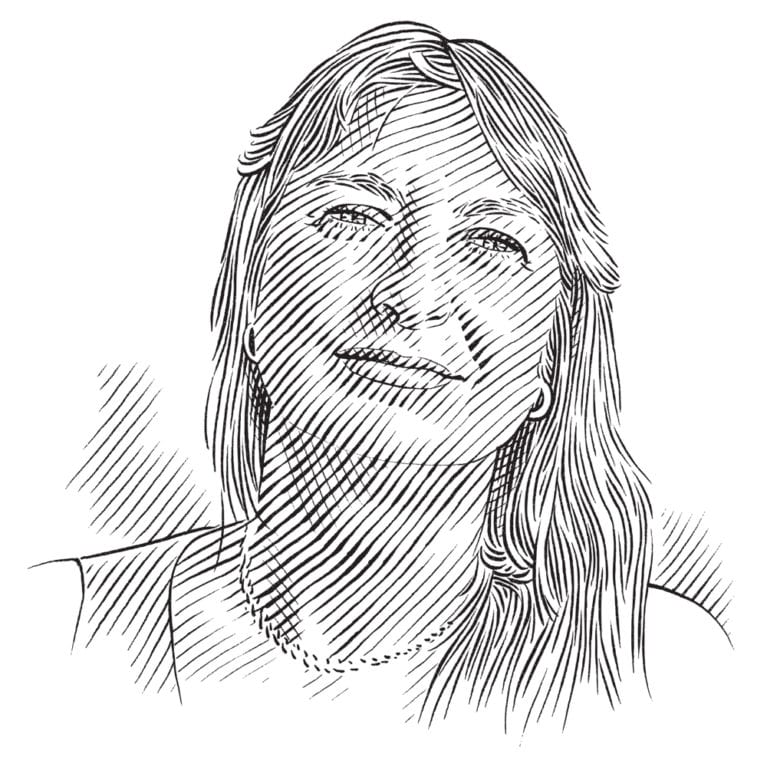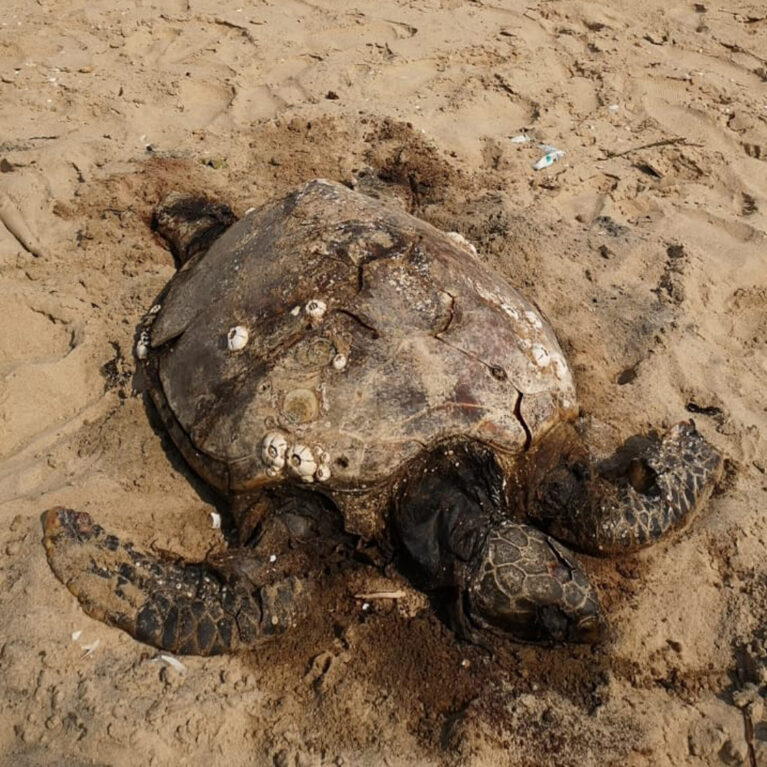Turtle tracks in the sand
D’Arros Island and St Joseph Atoll have been identified as one of the most important areas in Seychelles and the broader Western Indian Ocean for Hawksbill (Eretmochelys imbricata) and Green (Chelonia mydas) turtles, with both species using the beaches for nesting. We continually monitor their presence at the islands, collecting data both from individual animals present on the beaches and from the tracks they leave behind. From these we can estimate the population sizes and growth of these two turtle species.
Since its inception in 2012, the SOSF-DRC has been managed and run by different people in various capacities. Lab managers, research officers and research assistants have been integral to the daily operations of the centre over these years and our long-term projects have been handed on from past to present management.
Currently the SOSF-DRC is run by Dr Robert Bullock and Henriette Grimmel in a joint-management capacity.
The following is a history of past management staff:
- Dr Rainer von Brandis (scientific director) 2006/2012–2016, previously did his PhD on D’Arros and managed the research lab for the previous owners of the island
- Chris Boyes...
Ever since I was a little girl I knew I wanted to be a scientist – but I didn’t know what kind. What I did know was that I loved animals, especially ‘cold’ animals – reptiles, amphibians and insects – and that I loved the outdoors. I grew up in the big city of Chicago in the USA, but from the age of six to 20 I spent all my summers at my family’s fishing lodge in the lakes region of north-western Ontario in Canada. There I worked as a waitress, a fishing guide and a house painter and in...
Monitoring of nesting sea turtles
The key objective of this research project is to gain a better understanding of the population numbers, nesting activity and movements of marine turtles that use D’Arros Island and St Joseph Atoll.
Hawksbill and green turtles are listed as Critically Endangered and Endangered, respectively, on the International Union for Conservation of Nature’s (IUCN) Red List and both are experiencing population declines that are driving them to extinction. Research into turtle populations using important nesting habitats provides the critical information needed to support efforts for their conservation.
Sea turtles are found in all oceans except in the polar areas, and the Republic of Seychelles represents a globally important region for nesting. These turtles play an important role in ecosystems as one of their primary food types is sea grass. Sea-grass meadows are a critical habitat for many species and need to be constantly cut short to support growth. Sea turtles grazing on the sea grass helps to keep the meadows healthy.
The key objective of this monitoring programme is met by several specific study objectives:
- To record the distribution of nesting turtles around D’Arros and St Joseph;
- To gather key information about the size and identity of nesting turtles, including flipper tagging and DNA sampling;
- To monitor the numbers of both species of turtles that use the site for nesting to inform long-term population trends.


